A Name steeped in Truth (and Other Substances)
In Assamese, Gurgaon (pronounced Goo-r Gaon) quite literally translates to “a village full of shit.” And every now and then, I find myself wondering — was this a prophecy in disguise?
Because honestly, it’s not too far from the truth.
Filth in Gurgaon isn’t a nuisance. It’s an omnipresent design feature. Every corner comes with its own curated garbage mound—some seasonal, some permanent. Sewer lines bubble over with quiet rebellion. Like slow-cooked revenge, turning the streets into olfactory battle zones.
And yet, the city offers its residents a unique, rare privilege: the chance to live in a garbage bin the size of Singapore, thoughtfully garnished with glass-clad towers. A perfect marriage of decay and aspiration. Urban planning meets post-apocalyptic chic.
Next time someone says “Gurgaon is developing fast,” do take a moment to ask: “Into what?”
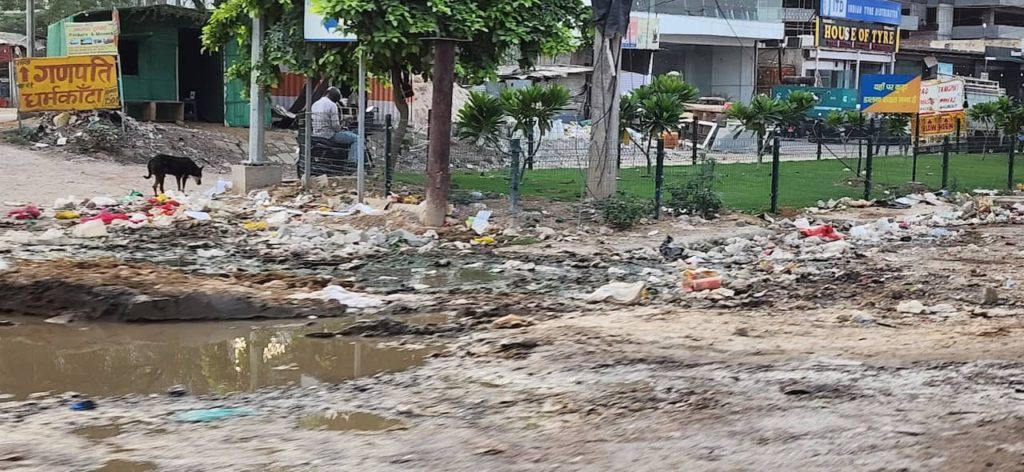
Gurgaon’s Holy Rebranding
The political overlords of this so-called city weren’t sitting idle. No sir. They reached deep into India’s beloved bag of urban development tricks—and pulled out the holy grail of good governance: a name change.
And so, Gurgaon became Gurugram.
The logic, of course, was impeccable. After all, if it worked for Madras, Bombay, and Allahabad, why not try some etymological sorcery here too?
Faced with kilograms of historic pride, the city’s very own piles of garbage began their miraculous transformation—into metaphorical gold. Or so the story goes.
That’s what residents tell themselves every night, curled up in their multi crore-rupee condos. Windows shut tight to keep out the stench, ears shielded from the 24/7 symphony of honks, and overlooking a skyline that’s best viewed with filters. Instagram filters. Juno. Clarendon. Anything but reality.
But hey, at least the name now has “Guru” in it. That has to count for something.
Spiritual growth, maybe.
Or perhaps just spiritual resignation.
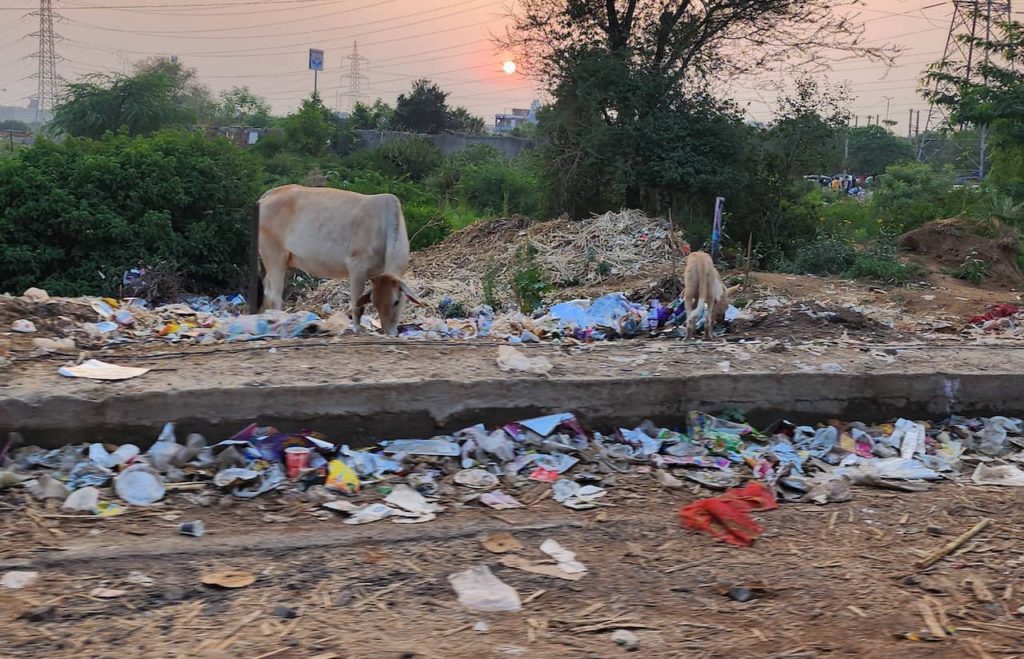
A Traffic Light Opera
Each morning, as I wait at the traffic light, Guru-gram offers yet another masterclass in urban absurdity.
A cacophony of horns in every possible pitch fills the air. Vehicles crawl ahead a few inches—just enough to generate a sense of false hope—before the light turns red again.
Progress, as they say, is subjective.
Overlooking this mechanical mayhem is a faded, dust-coated signboard, proudly reminding everyone that they are in #SmartGurugram—lest anyone forget that amidst the honks, heat, fumes and stench.
As my cab lumbers across the intersection, a few traffic policemen come into view—uniforms soaked, faces weathered, tightly gripping handheld challan machines like heat-stricken Jedi knights. Keeping order in the chaos. Right out of Maxwell’s demon thought experiment.
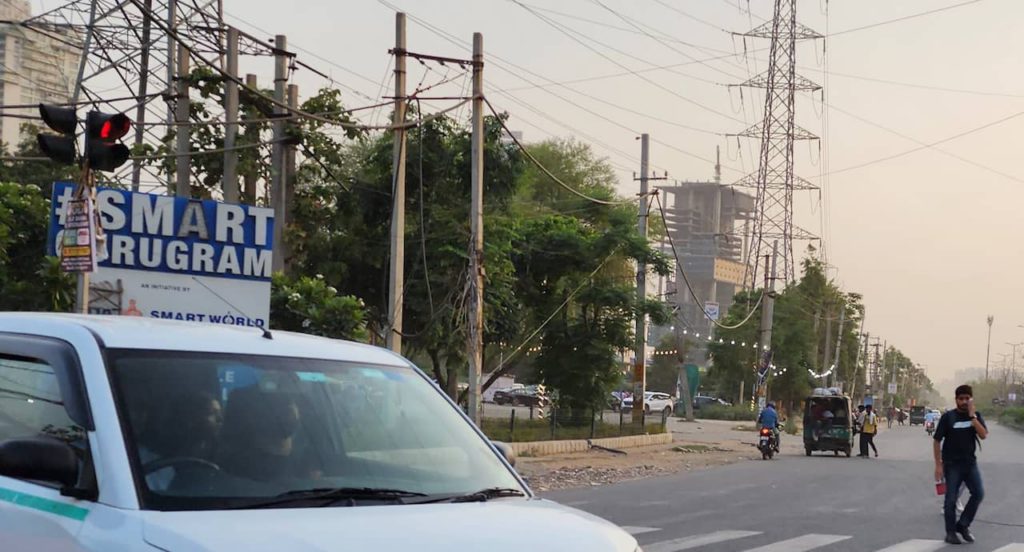
Lessons from the Guru
On the sidewalk, a few street urchins hover—ragged pens in hand, hope in their eyes. They are not picky. Ten rupees for a pen or ten rupees for pity—either transaction would do.
Survival, too, is subjective. Because in Gurugram, even empathy is monetized.
A boy—barely ten—approaches a hulking SUV and taps on the tinted glass. The window remains rolled up. The AC hums inside, oblivious.
Maybe he should have been in school.
But no—he’s lucky. He’s learning from the Guru.
Not in a classroom, of course. That would be too cliché for Gurugram. This is hands-on learning. Real life. Real hustle.
His syllabus includes traffic signals, windshield wiping, strategic begging, advanced negotiation with indifferent adults, and real-time rejection handling. An MBA in survival.
Perhaps he is Eklavya?
Seems to be. Thumbs up!
Except here, there’s no Dronacharya to deny him an education.
Because here—no one even notices him.
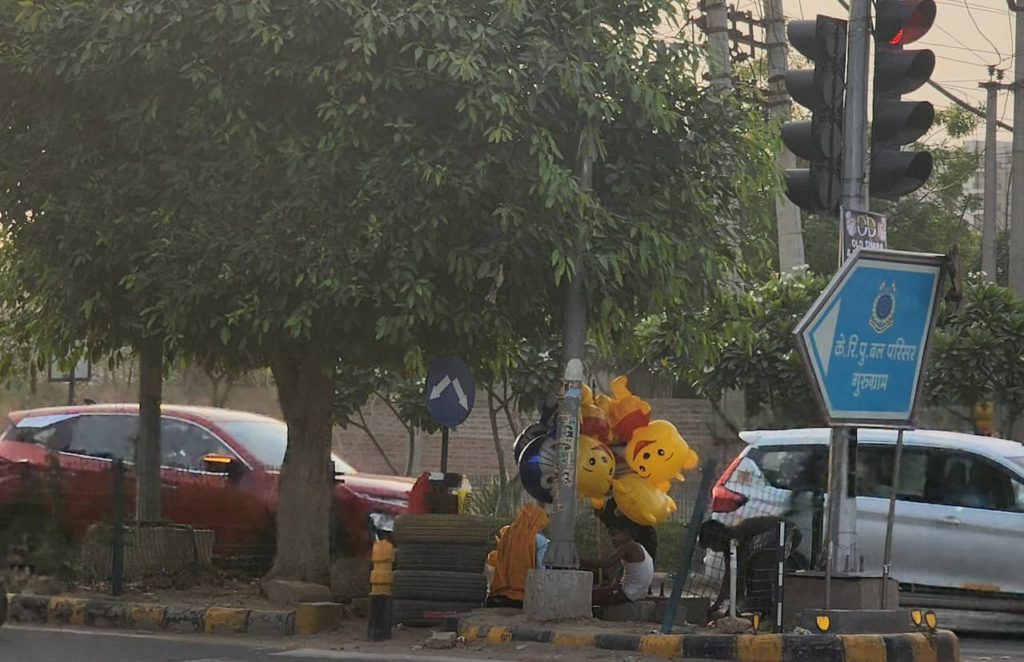
And Then Came the Rain…
And just when you think Gurugram has given you everything—potholes, posh cafés, and philosophical trauma—it rains.
Not a monsoon. Not a downpour. Just 15 minutes of respectable drizzle. Enough to drown entire sectors.
Basements turn into underground swimming pools. Cars begin their amphibious journeys. Residents, now trapped indoors, spend their time documenting this on WhatsApp groups:
“Hi, anyone else’s drawing room floating?”
“Guys, please avoid Golf Course Road—it’s currently a tributary of the Yamuna.”
“Bro, the ducks are back in Sector 57.”
Hope, Floating
And yet, despite the water-logged roads, power outages, and mosquito armies, there’s something bizarrely beautiful about this city.
Maybe it’s the people. The mad, ambitious, air-purifier-owning dreamers.
The ones who pay crores to live in towers that flood, traffic that stands still, and air that tastes like diesel.
They still believe.
They still stay.
They still smile for selfies next to waterlogged Audis.
Because if there’s one thing Gurugram teaches you—it’s resilience.
Or denial.
Or both.
But maybe, just maybe, when the waters recede and the sewage retreats, a better city might emerge.
Stronger. Cleaner.
Or at least better at pretending.
Until then, keep your umbrellas ready, your filters strong, and your sarcasm sharper.


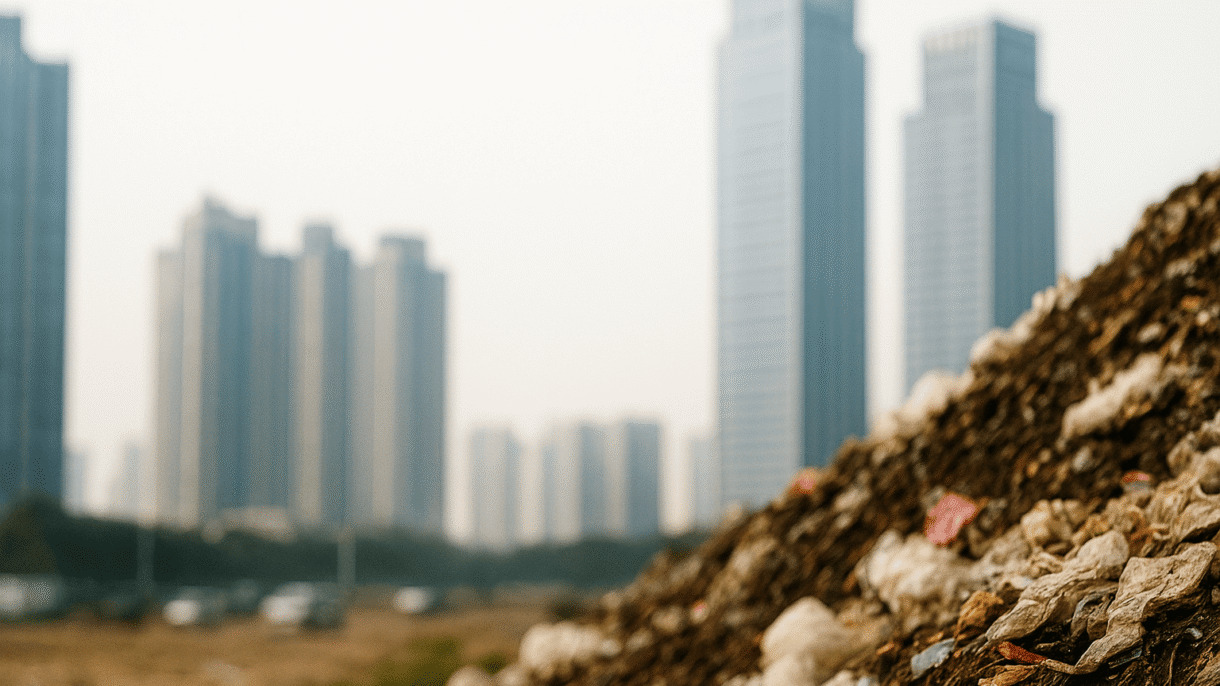
One reply on “Rebranding the Rot: A Corporate City with a Civic Crisis”
333985 5th March 2026 at 10:38 AM
每天都在战争,希望2026和平.